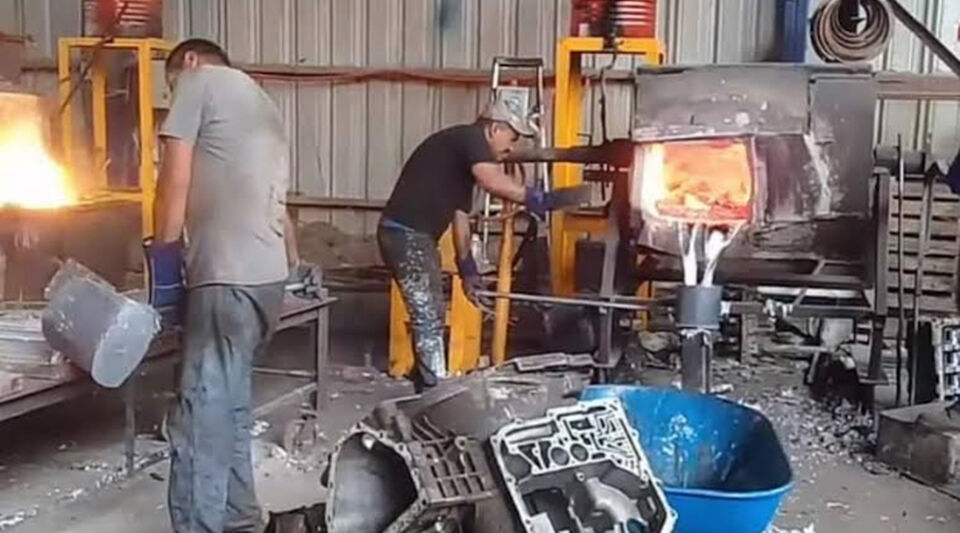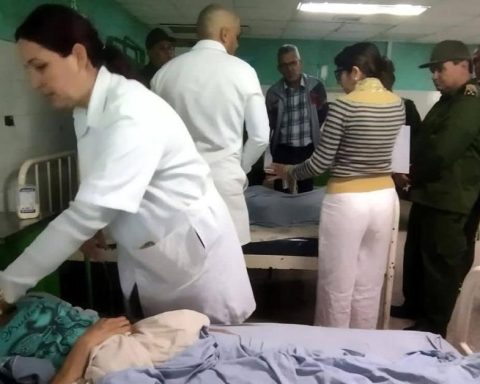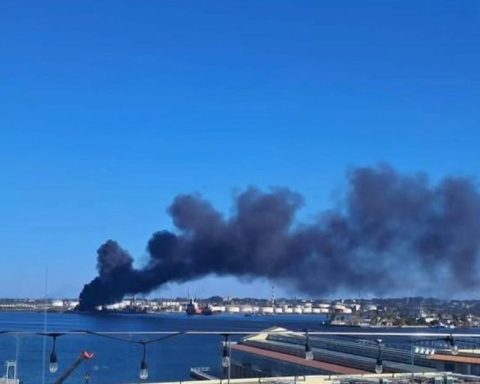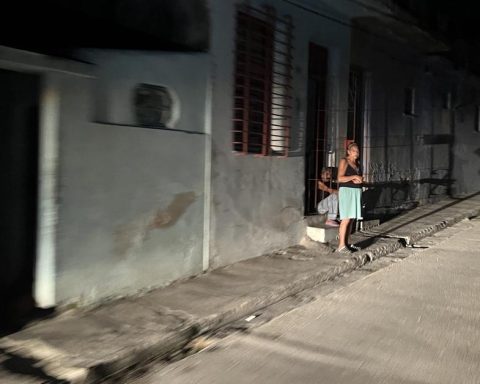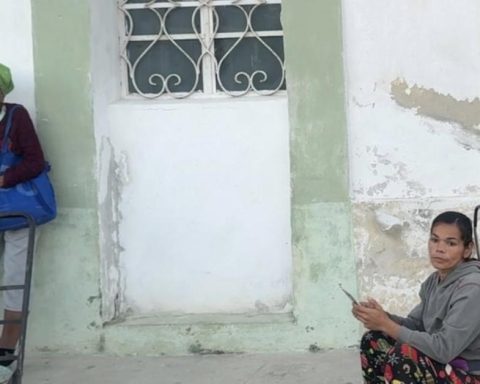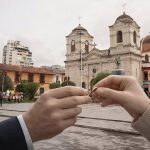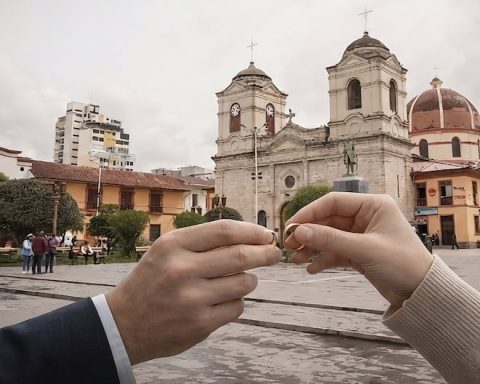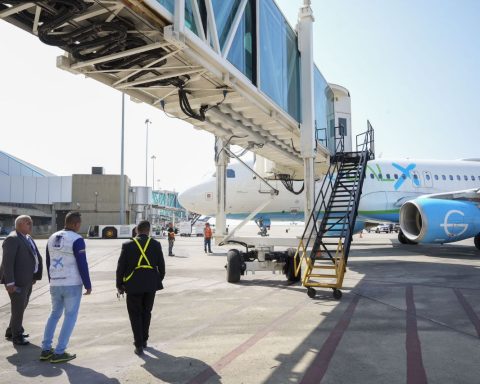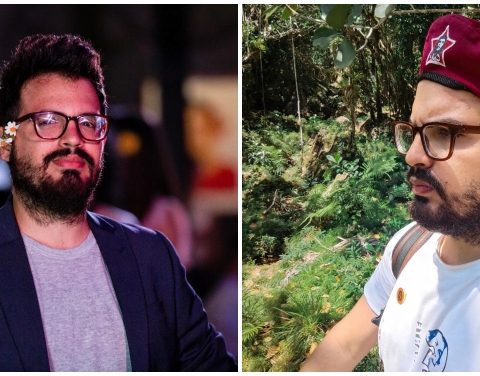The municipality of Placetas, one of the economic engines of Villa Clara, is also the mecca of aluminum in Cuba. The foundries, first clandestine and later approved by the Government as MSMEsthey attract hundreds of workers and it is one of the few industries that –following its own rules and with “traps” to get the raw material– prosper in the center of the Island.
Cutlery, doors, windows, spare parts, benches and armchairs, aluminum has been the most versatile and used metal in the daily life of Cubans for years. The manufacturers pay is good –from 300 to 350 pesos a day–; labor risks, multiple. It depends on the type of objects and the size of the project. But still, business is booming.
At eight in the morning, in Placetas the rattling of the foundry is heard and the steam of molten metal emerges from the furnaces. One of the factories, run for years by two people from La Plata, is made up of two high-ceilinged warehouses, built in the vicinity of their houses.
In one of the ships the process of melting and molding occurs. Laborious and trained hands shape the product, assemble its parts and weld the pieces together. Later, in the second enclosure, they sand and paint the objects. The forge has 48 workers, who sweat tirelessly in front of the fire in the ovens.
“When we started, in 2012, all this was illegal,” he admits to 14ymedio David, one of the factory owners. “We started manufacturing cauldrons, oil stoves, cutlery, plates and glasses. In 2016 everything changed, we made the ‘leap’ to making windows and doors in small quantities, and we only sold to the people of the town. Luckily, they opened up the possibility of taking out a patent and, now, of becoming a MSME“.
For David and the rest of the producers, the fundamental problem is getting the aluminum, which they initially obtained from the Placetas Raw Materials Company. The State, he says, was stingy with the amounts it sold to them, which is why they went to the “collectors”, town criers who collect or buy “any bit of aluminum” on the streets.
In 2017, finally, the Cuban Fund for Cultural Assets put a contract on the table to supply them with enough aluminum. In exchange, David and his partners had to set an advantageous price when they sold them benches and garbage cans for municipal parks, gates for state buildings and streetlights for public lighting, as well as various furniture.
However, they do not give up private collection and recycling of the metal, which is also a source of income for retirees who collect and sell aluminum cans, originally used for the sale of beer, soft drinks and malts, he says. In addition, there are now also several private companies dedicated to recycling, such as one of their partners, Hila Metal Surl.
The State, he says, was stingy with the amounts it sold them, which is why they went to the “collectors”, town criers who collect or buy “any bit of aluminum” on the streets.
“Life for the smelters became a little more comfortable,” says David, and the other factories looked for alternatives to supply the raw material. Today, there are foundries in Placetas linked to the Fund, units of the Provincial Metal Shaping Company –administered by the State and known as Metalconf– and independent artisans such as David, who have organized themselves in MSMEs.
The work of each sector is more or less “distributed”, explains the owner. “Those from the Fund are in charge of making roof plates, lampposts, swings and other articles requested by the Government, which buys everything at reasonable prices and grants subsidies to manufacture the objects that are later sold in industrial product stores. On the other hand, part, the self-employed specialize in kitchen utensils, but the bulk of their work is blinds, doors, chairs, armchairs and tables,” he says.

As for Metalconf, which has several factories in Placetas, it has its own distribution and marketing mechanism, which also includes exports to various Caribbean countries, according to official sources.
Are the MSMEs the ones that set the pace for prices, says David. The doors aluminum usually cost 6,900 pesos and windows, 5,500. A table set with its four chairs, 13,000, while two armchairs, with a sofa and a central table, amount to 15,000 pesos. His company, he clarifies, is in charge of making home deliveries for free – they transport the products in a truck, once a week – to Santa Clara, Camajuaní, Remedios, Caibarién and Placetas itself.
Rodrigo, another of the owners of a foundry in the municipality, is concerned about the terrible conditions in which his 30 workers operate, half of them directly involved in production and the rest in the collection of metal. His company has not yet become MSMEbut hopes to soon obtain the documents that endorse it as such.
“In the factory,” he laments, “founders are exposed daily to toxic substances or lead poisoning, not counting burns if liquid metal splashes out of the mold.”
“In the factory,” he laments, “founders are exposed daily to toxic substances or lead poisoning, not counting burns if the liquid metal splashes out of the mold. What is worrying is that many times they do not have the necessary means of protection such as high-temperature gloves, leather boots, or girdles. It’s also hard to get goggles and heavy-duty coveralls.”
Rodrigo’s foundry, dedicated to the production of cutlery and other kitchen utensils, works almost by hand. The aluminum pieces are thrown into a furnace and melted down. At that time, the mold box is prepared, which is covered with earth, and once ready, a hole is opened, through which the liquid metal will penetrate. Hours later, when the piece cools down –it hardens in a very short time, thanks to its high level of freezing–, the mold is broken to remove the piece.
“Then comes the finish, which consists of filing, assembling the product and painting it with a spray,” says Rodrigo. It is very rare, the manufacturer presumes, that in some house in Villa Clara –or in all of Cuba– there is not an aluminum piece “made in Placetas”.
________________________
Collaborate with our work:
The team of 14ymedio He is committed to doing serious journalism that reflects the reality of deep Cuba. Thank you for accompanying us on this long road. We invite you to continue supporting us, but this time becoming a member of our newspaper. Together we can continue transforming journalism in Cuba.
